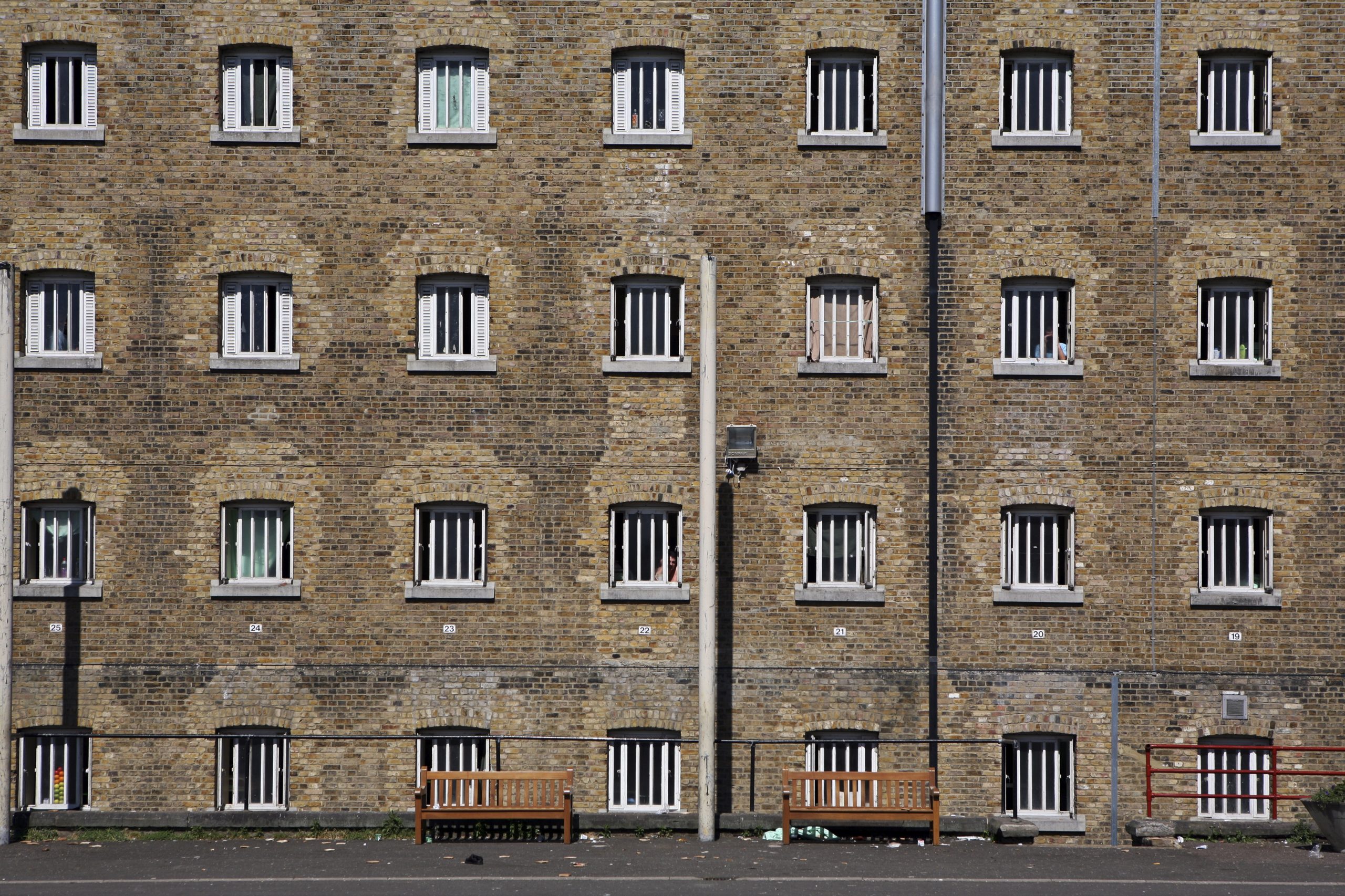[contextly_auto_sidebar]

A view of D wing from the exercise yard at Wandsworth Prison. It has a capacity of 1456 prisoners. Pic by
Andrew Aitchison www.prisonimage.org
Prisoners left languishing on indeterminate sentence of imprisonment for public protection (IPPs) have one of the highest rates of self-harm in the prison system, according to a new report by the Prison Reform Trust published today.
There are still 4,133 people in prison serving IPP sentences despite being scrapped in 2012 (here). The group reckons that for every 1,000 IPP prisoners there were 550 incidents of self-harm which compares to 324 incidents for every 1,000 inmates serving determinate sentences and is more than twice the rate for people serving life sentences. Last year, there were more than 2,500 acts of self-harm by IPP prisoners.
The report showed ‘the growing toll of despair’ on IPP prisoners and their families three years after it was abolished, said the PRT’s incoming director Peter Dawson. ‘Urgent action is needed. The government should convert these discredited sentences into an equivalent determinate sentence, with a clear release date, and provide full support to people returning to their communities. Only then will the damaging legacy of this unjust sentence finally be confined to the history books.’
According to the the Prison Reform Trust, the ‘effect of Parole Board delays, limited resources, poor procedures for managing risk and a lack of available places on offending behaviour programmes means that many IPP prisoners are held for years beyond their original tariff, no longer in prison for what they have done, but for what they might do’.
‘Four out of every five people serving an IPP are still stuck behind bars despite having served their minimum term. 719 people sentenced to an IPP sentence with an original tariff of less than two years are still in custody beyond their tariff. This group would not have been eligible to receive an IPP if they had been convicted of an offence following reforms to the sentence introduced in 2009. Many would have been likely to have received a relatively short determinate sentence.’
Prison Reform Trust
The PRT pointed to the Court of Appeal ruling earlier this year which ‘reaffirmed that it was the responsibility of the government and Parliament to find a solution for those stuck in prison beyond their tariff’. Justice secretary Michael Gove, in a recent speech to prison governors, said that there were ‘a significant number of IPP prisoners who are still in jail after having served their full tariff who need to be given hope that they can contribute positively to society in the future’. ‘Despite this, the government has ruled out the possibility of introducing new legislation, referring the issue to the Parole Board,’ the PRT commented.
The PRT reckoned that the cost so far of incarceration beyond tariff is ‘at least £500 million’ and every year the cost for time served over what a determinate sentence would have required is increasing by over £125 million.







